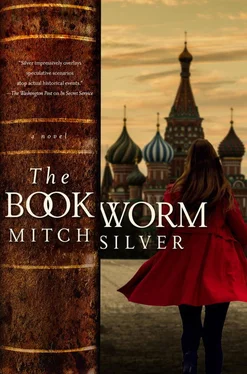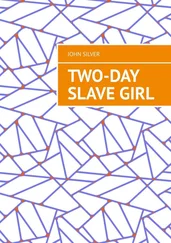Having handed out the coffees, Gerasimov sat down again at the iPad, inputting his ID and password on the keyboard. Viktor commented, “ Romantika and then Deti. Very good.”
Gerasimov frowned. “You’re not supposed to see the show’s password.”
Viktor ignored him. “‘Romance’ followed by ‘Babies’. Someone at your place has a sense of humor.”
All Gerasimov said was, “Thank you.”
For years, the world’s biggest light show has been the one mounted by Russian leaders every May 9 on Victory Day, marking the end of the Great Patriotic War in 1945. Swathing the four palaces and an equal number of cathedrals that make up the northeast façade of the Kremlin in a dazzling display of colored floodlights and projected images to the music of the great Russian composers, the show—paid for and coordinated by the government through Gosteleradio, which broadcasts it live to every viewing device in the country—is usually the most-watched TV event of any year.
With the growing popularity of Conception Day and the state’s interest in promoting population growth, a second annual son et lumière event was inaugurated. Lacking the military parades, Air Force flyovers and other trappings of Victory Day, the organizers determined that this new production would be even larger and more spectacular, inviting celebrities to intone selected texts and dignitaries from around the world to join the celebration, including—this year—America’s new president and other world leaders. And maybe, just maybe, it would give the protesters in the streets something else to do.
Ballet legend Mikhail Baryshnikov would be leading off the evening, reading his favorite poem about—what else?—a pair of dancing lovers. Gerasimov pressed Play on the computer and Baryshnikov’s still picture came up. The Broadcast Director fast-forwarded through the five minutes of airtime the ballet star would get.
Next there was the now-completed montage of scenes from the career of torch singer Alla Pugachova, including the image Lara saw at the dacha. She’d sold as many records, all love songs, as the Beatles ever did, though not many recently. The images from her life and career would accompany her singing “Dreams of Love” and “Million Roses.”
Viktor glanced at Gerasimov. “Pugachova? I thought she was dead.”
Gerasimov shrugged. “It wouldn’t be Conception Day without her.”
Next came the section a team of young artists had been struggling to get done, a series of psychedelic images set to Stravinsky’s Firebird Suite that would play as fireworks filled the night sky over Moscow. Gerasimov murmured to himself, “Better. Much better this way.”
Lara, sitting apart from the others, was letting her coffee get cold. She was worried about a dozen things at once. Was Lev all right? What about those photos he’d sent? And what about the kid with the red hair and muddy shoes? And Tatiana Ivanova, the weather lady on the video? And Viktor and her divorce… how did she feel about that, now that she finally was free? And back to Lev, was he all right?
“Oh, look at this! It’s the thing you’re doing tomorrow morning!” On TV, Fabrika Zvezd was over and Channel One had moved on to the news. Katrina swiveled the little television on the counter so the others could see it.
They were showing stock footage of schoolchildren in class, with the now-familiar image of the smiling US president juxtaposed next to them in a split screen. Trina dialed up the sound. The anchorwoman was saying, “…an online press conference, in effect, for five million students, after which the American leader will meet with ours.”
“That reminds me,” Gerasimov said, “I’ll have to pick you up early.”
The anchorwoman had moved on. “In a fitting touch, we’re told the Americans’ visit has been extended a few hours so the president can attend the Conception Night light show tomorrow evening at the Kremlin along with other leaders of the G20. Fitting, because he’s also the father of five. In other news…”
The image was now a string of evenly placed fires glowing in the night as firemen played their hoses over them. “In Berchtesgaden, Germany, a string of car and truck fires apparently was started to distract authorities from the theft of memorabilia from Adolf Hitler’s wartime headquarters. An old book with Hitler’s initials in it was stolen from the restaurant that now sits on the site. The book, a Bible, is valued at 2000 euros.”
Lara stared at the screen. “ Bozhe moi! Oh my God! That’s the thing I was looking for all week—Hitler’s Bible!”
“What are you saying?” Viktor got up. “That you were trying to find something… a Bible… that just got stolen?”
“Yes, exactly. I just can’t believe the coincidence.”
“Was it valuable? I mean, to a private collector? More valuable than they say?”
The screen was showing a gilded plate and a pen-and-pencil set on a table with an empty space between them. Then the scene cut to a view looking from the valley below back up to the restaurant. It was eerily similar to the one she’d seen on the eBay page.
“Not the book itself. What’s written inside. Someone offered me two million rubles to find the thing.”
“Really? Wow!” Touching the iPad lying on the table, Viktor asked, “This computer of yours… have you been sending emails from it?”
“A couple. And feedback to a guy on eBay.”
Without asking Gerasimov’s permission, Viktor closed out the Conception Night file. Then he began typing on the iPad’s virtual keyboard like a madman.
Lara said, “Do you know what you’re doing, Viktor?” She didn’t mean it as a putdown, but that’s how it came out.
He didn’t look up. “You said you don’t believe in coincidence. Neither do I.”
He kept entering things on the keyboard, pulling down various windows and opening files on the operating system even as he replied to her question. “I’m an intelligence officer, a pretty good one, actually. In the twenty-first century, nobody passes little pieces of paper around with codes written on them, or gives up state secrets in bed.” Viktor looked up briefly at the two women, one his ex-wife and one his new lover, and added, “Of course, we still try.”
He entered another something, continuing his thought. “These days we run electronic intelligence sweeps, hunt for cyber-terrorists, that sort of thing.” He stopped and peered at the screen. “Okay, there’s your problem.”
The three others looked at him, uncomprehendingly. Gerasimov asked, “Do you mean it’s okay, or that there’s a problem?”
Instead of answering, her ex swiveled to face Lara. “You have a key-logger.”
Katrina said, “Is that bad?”
“Well, if you want the bad guys to know everything you’ve entered on this computer since you’ve had it, it’s perfectly fine.”
Katrina sat down in the chair next to Viktor. “But how can they? It’s a portable; there aren’t any wires.”
“Okay, my little noodlehead, since you asked… right this minute, there are at least five ways a software programmer can hack into this computer from another one. There’s Blue Pill, though that’s mainly for Windows, not Mac. It sort of runs underneath the operating system, taking it over. There’s also hooking, there’s polling, there’s—”
“Viktor, please,” Lara said. “In simple Russian.”
“All right. But if I tell you, I want the floor lamp.” He smiled. “Just kidding. Somebody installed malware in your machine, maybe in a spam email you opened and then trashed. It left behind a cookie, a sort of footprint of a file that left behind a kernel-based rootkit. Very hard to detect, the kernel-based ones. It grabs any information typed on the keyboard as it goes to the operating system, transmitting it…” he paused to look at Katrina, “… wirelessly , maybe to a predetermined email address or a website, but more probably, if they used the ethernet, they can directly access the logs stored right on this machine. Have you left your iPad alone at any time?”
Читать дальше












